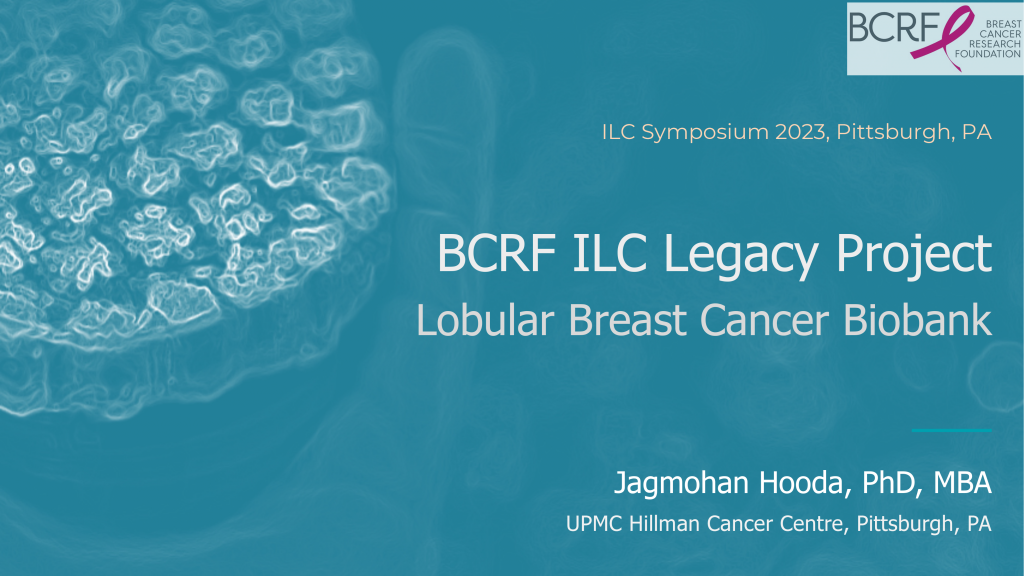The BCRF ILC Legacy Project
The Leigh Pate Living Biorepository of Invasive Lobular Breast Cancer
Welcome to the BCRF ILC Legacy Project, a groundbreaking initiative in the efforts to improve outcomes for patients with invasive lobular carcinoma (ILC), the most common special histologic subtype of breast cancer. The project was made possible by the late Leigh Pate making a gift to the Breast Cancer Research Foundation (BCRF) to establish a Living Biorepository of Invasive Lobular Breast Cancer.
The goal of the project is to establish a biobank of 20 lobular patient-derived organoids (PDO), to comprehensively characterizing them, along with the tumors from which the PDOs were generated, and finally to distribute the data as well as the PDOs to the larger research community.
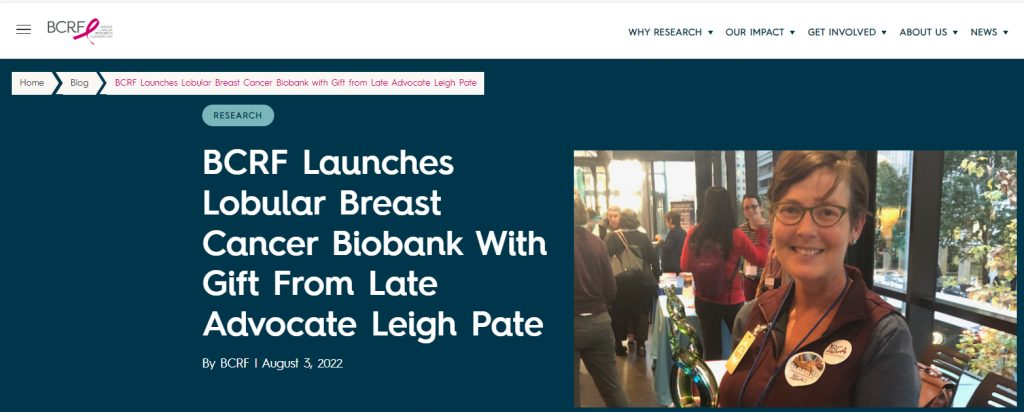
https://www.bcrf.org/blog/leigh-pate-living-biorepository-invasive-lobular-breast-cancer-2022/
Three-dimensional PDO models mimic the behavior and characteristics of ILC more faithfully than two-dimensional cell lines, providing an invaluable resource for scientists to study unique characteristics of lobular tumors. To achieve our stated objective, multi-disciplinary teams will employ cutting-edge technologies to generate in-depth molecular data on both patient samples and their matching organoids. A BCRF ILC Legacy portal will provide access to the omics data, to digital pathology images as well as to limited clinical data. We expect that our collective efforts will drive scientific advancements, uncover potential therapeutic targets, and pave the way for personalized treatment approaches for patients affected by ILC.
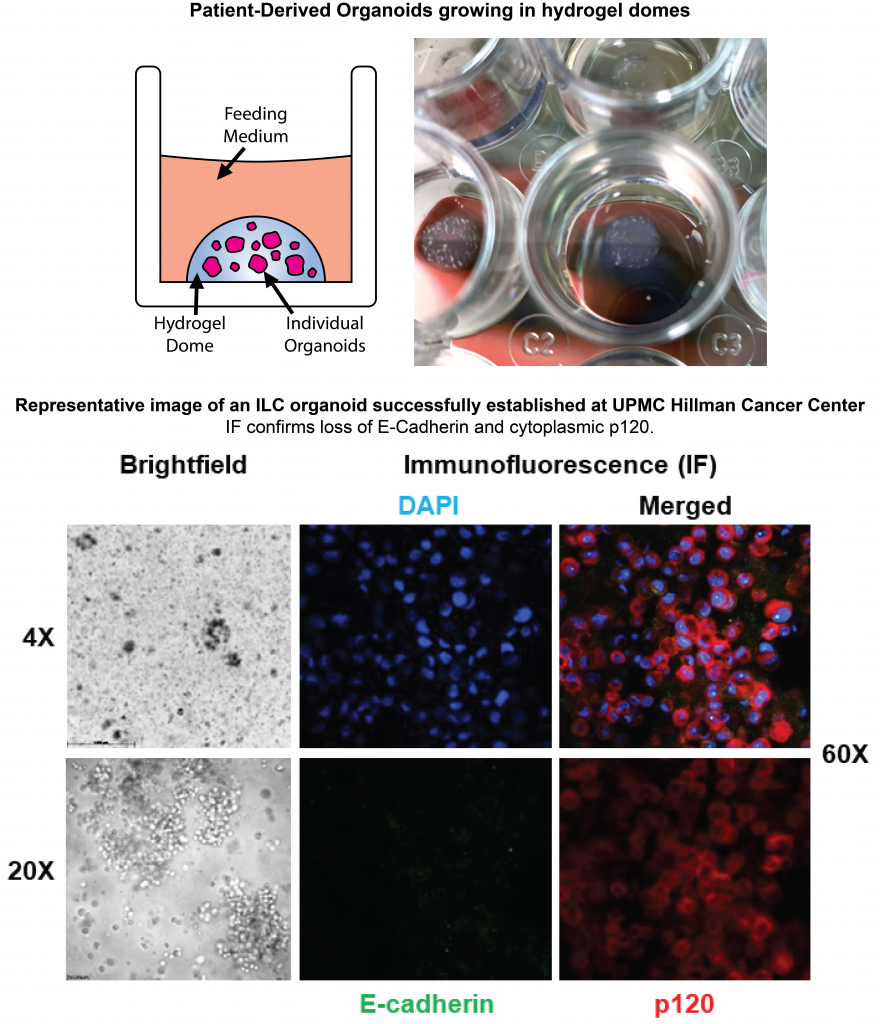
Leigh Pate and background to the BCRF ILC Legacy
ILC accounts for 10 to 15 percent of invasive breast cancer diagnoses amounting to almost 40,000 new cases each year in the US. ILC has long been understudied and misunderstood, and the lack of ILC models has hindered progress in understanding this breast cancer subtype. The late Leigh Pate, an ardent advocate for ILC recognized that, and her donation to BCRF enabled the establishment of the Leigh Pate Living Biorepository of Invasive Lobular Cancer.
Originally from rural North Carolina, Leigh Pate embraced a life of adventure and discovery. Settling in Seattle, WA, she thrived as a public affairs and political consultant, and communications specialist. Leigh’s love for writing and photography was evident through her captivating blog (https://leighpate.com), however, in 2011, her journey took an unexpected turn when she was diagnosed with lobular carcinoma.
Leigh became a passionate advocate for the understudied ILC subtype of breast cancer. She played a vital role (together with Dr Steffi Oesterreich and Lori Petitti) in launching the Lobular Breast Cancer Alliance (LBCA) in 2017, after being inspired by the need for such group at the 2016 ILC Symposium in Pittsburgh. She developed LBCA’s overall mission and was able to engage a terrific group of ILC advocates. Her inspiration and motivation were contagious, and she made sure that being part of LBCA was not only work but also enjoyable at the same time, and that everyone’s contributions were acknowledged. Under her leadership, LBCA developed into an organization that brought lobular breast cancer to the forefront of researchers and clinicians.
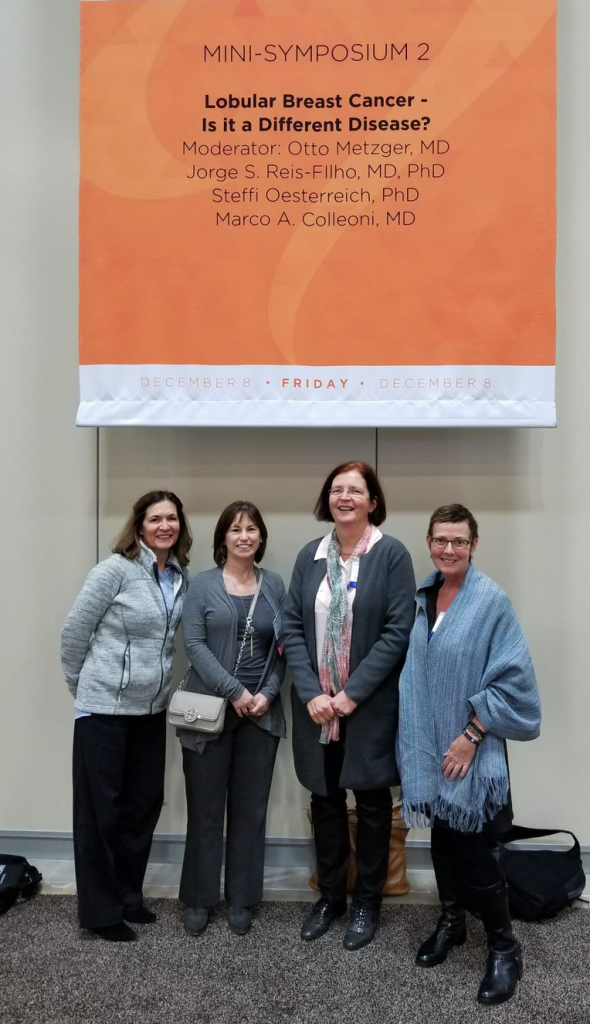
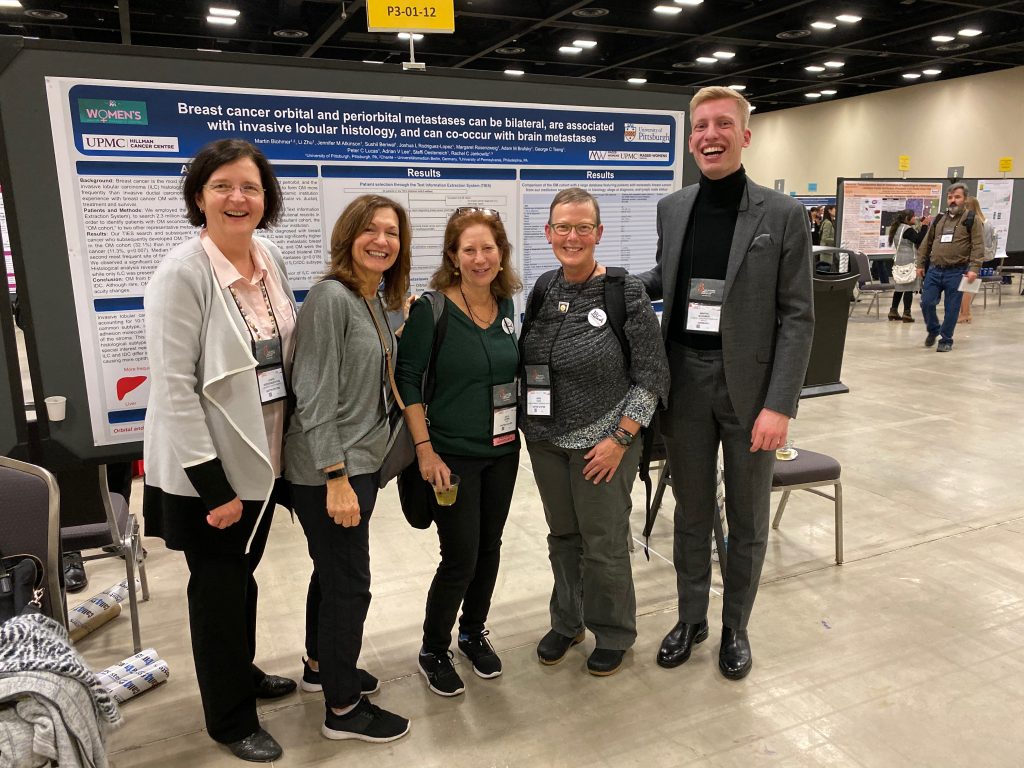
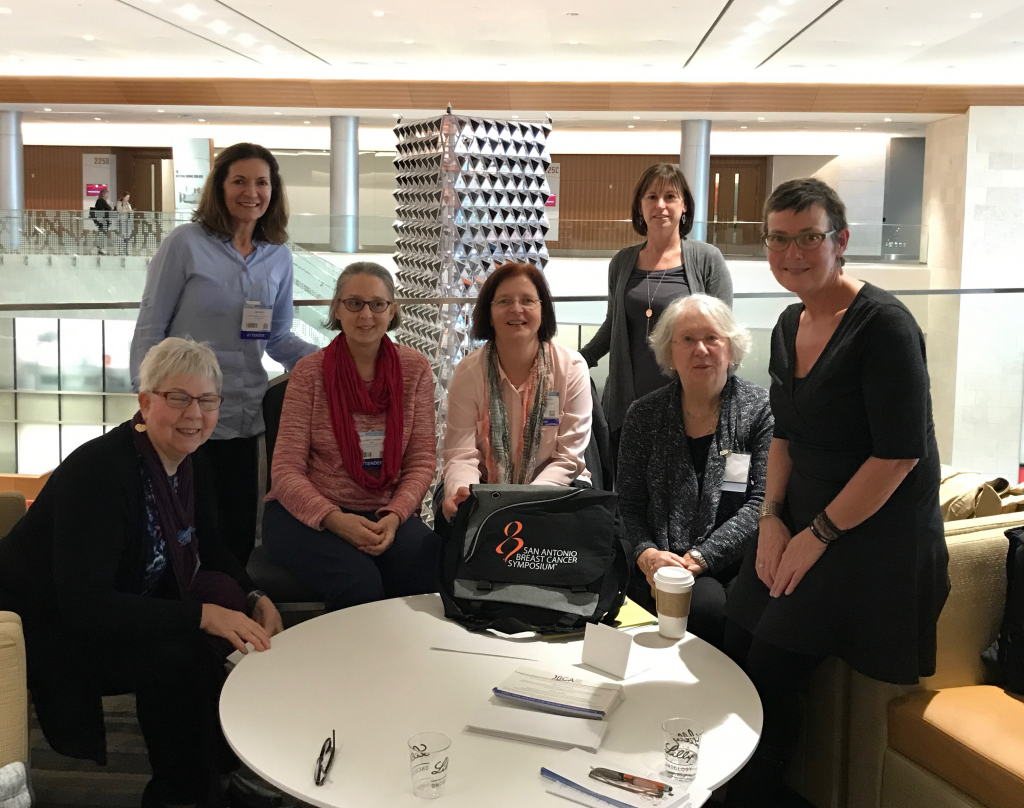
Leigh was an excellent writer – she took the lead on writing a white paper summarizing the knowledge and gaps in understanding of lobular breast cancer. She was subsequently the lead author of a manuscript in a scientific journal describing how patient advocates, researchers, and clinicians can work together to improve understanding and, ultimately, outcomes from ILC (PMID: 34206261). She also participated in generating and presenting posters on lobular breast cancer at scientific meetings, and initiated a large survey on ILC which was presented at 2022 SABCS.
Leigh did not care for recognition, but her work was not left unnoticed. She received the Beth Caldwell Advocacy and Leadership Award, was invited by Susan G Komen to become an Advocate in Science, and was elected a Susan G Komen Scholar, joining a small international group of esteemed breast cancer researchers and advocates that help guide the organization’s work.
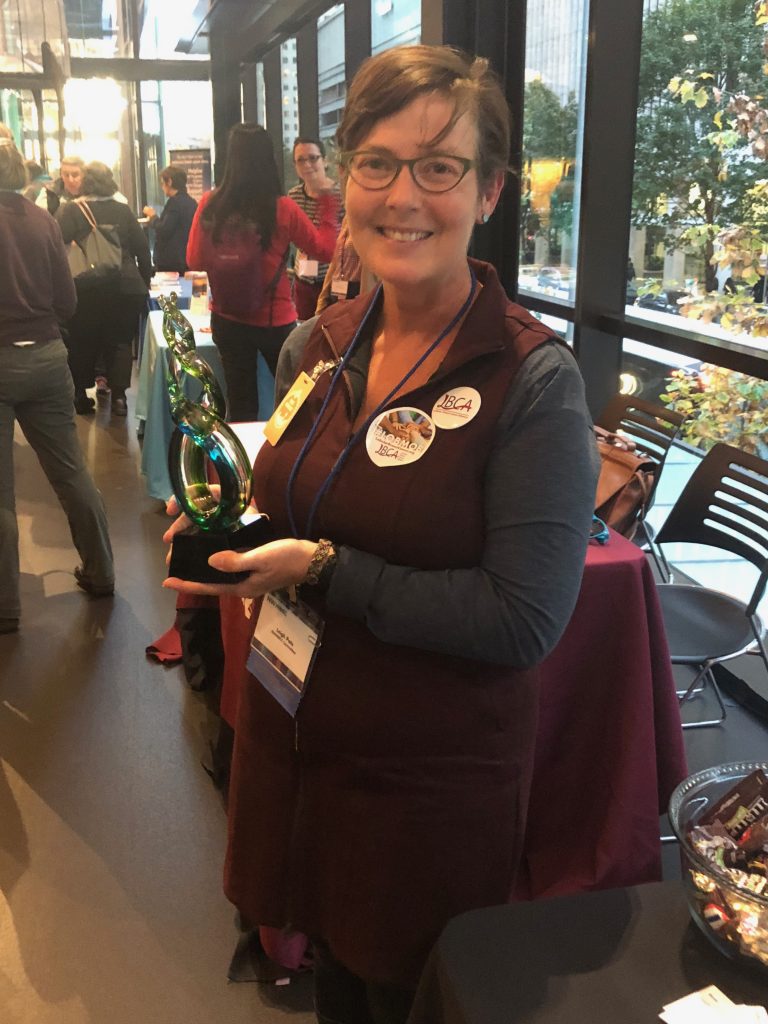
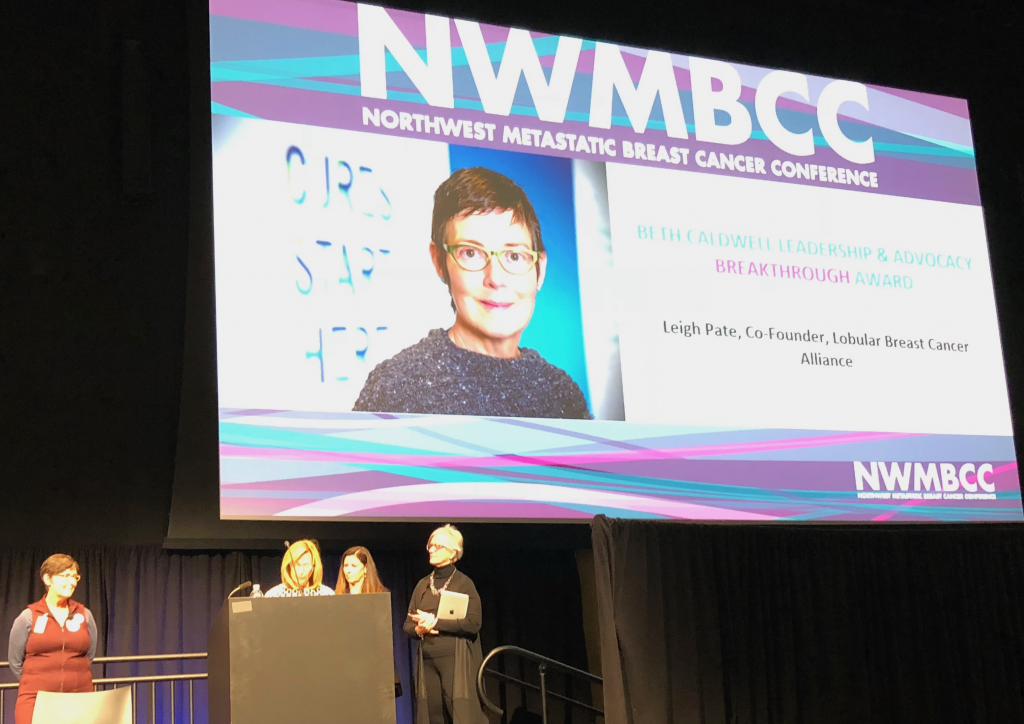
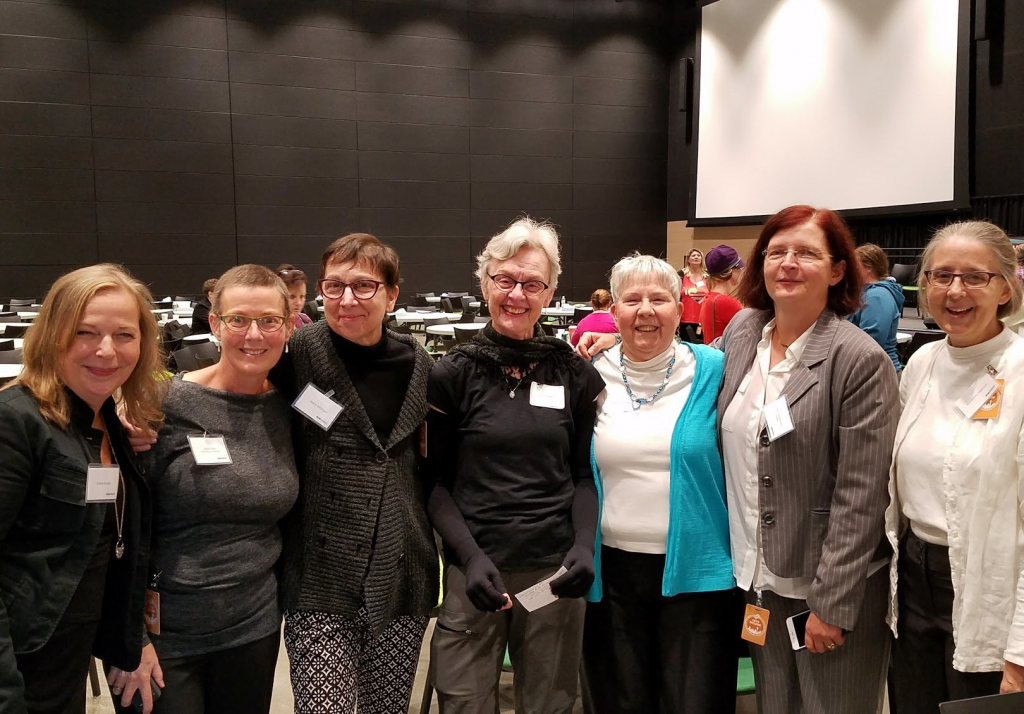
Although Leigh’s life was tragically cut short in 2022, after a second cancer diagnosis, her legacy lives on through her generous donation to BCRF. This donation made possible the Leigh Pate Living Biorepository of Invasive Lobular Breast Cancer, which will undoubtedly propel ILC research forward. Leigh’s altruism, personal impact, and dedication to advocacy will continue to inspire and create lasting change in the lives of many. With Leigh’s vision as our guide, the Leigh Pate Living Biorepository of Invasive Lobular Cancer promises to be a catalyst for impactful research on ILC.
Description of the BCRF ILC Legacy project
Lay Abstract:
Breast cancer is a prevalent disease affecting thousands of women each year. Among the various types of breast cancer, one particular subtype called invasive lobular carcinoma (ILC) presents unique challenges and requires focused research. ILC stands out due to its distinct growth pattern, characterized by cancer cells marching in a single-file formation within the breast tissue. This unconventional growth pattern makes the detection of ILC more difficult, often leading to delayed diagnosis. Moreover, ILC has a higher propensity to spread to unusual sites, such as the gastro-intestinal tracts, ovaries, and even specific areas of the brain. These factors underscore the urgency to better understand the biology of ILC and develop targeted treatments for this specialized breast cancer subtype. Research has been hampered in part due to lack of ILC models. To address this need, the BCRF ILC Legacy Project is undertaking an ambitious endeavor. Through cutting-edge technologies and innovative approaches, the project aims to generate new and advanced models of ILC. These models, which we call LIOs (Leigh’s Legacy ILC organoids), mimic the complex nature of tumors more accurately than traditional cell lines, enabling researchers to conduct comprehensive studies and improve drug testing efficacy.
By collecting lobular tumor specimens during surgery, the project will develop a valuable resource of living biorepositories, containing organoids derived directly from patients with ILC. In addition to the generation of these models, the project will perform comprehensive molecular analyses of the matching tissue. This wealth of information, combined with detailed clinical data and pathological features, will be made accessible to the broader scientific community, fostering collaboration and accelerating progress in ILC research. The successful completion of the BCRF ILC Legacy Project has the potential to revolutionize our understanding of ILC and open new avenues for targeted therapies. With the collective efforts of researchers, clinicians, and patient advocates, we can unlock the mysteries of this challenging breast cancer subtype and improve outcomes for patients around the world. Together, we can make a significant impact in the fight against invasive lobular carcinoma and bring hope to those affected by this devastating disease.
Scientific Aims of the project:
Aim 1: To collect ILC specimen together with clinicopathological data.
Aim 2: To develop 3D patient derived organoids from ILC specimens (“LIOs”).
Aim 3: To perform bulk genomics on the ILC tumor specimen and the PDOs.
Aim 4: Exploratory study utilizing single-cell sequencing on the ILC tumor specimen and the PDOs.
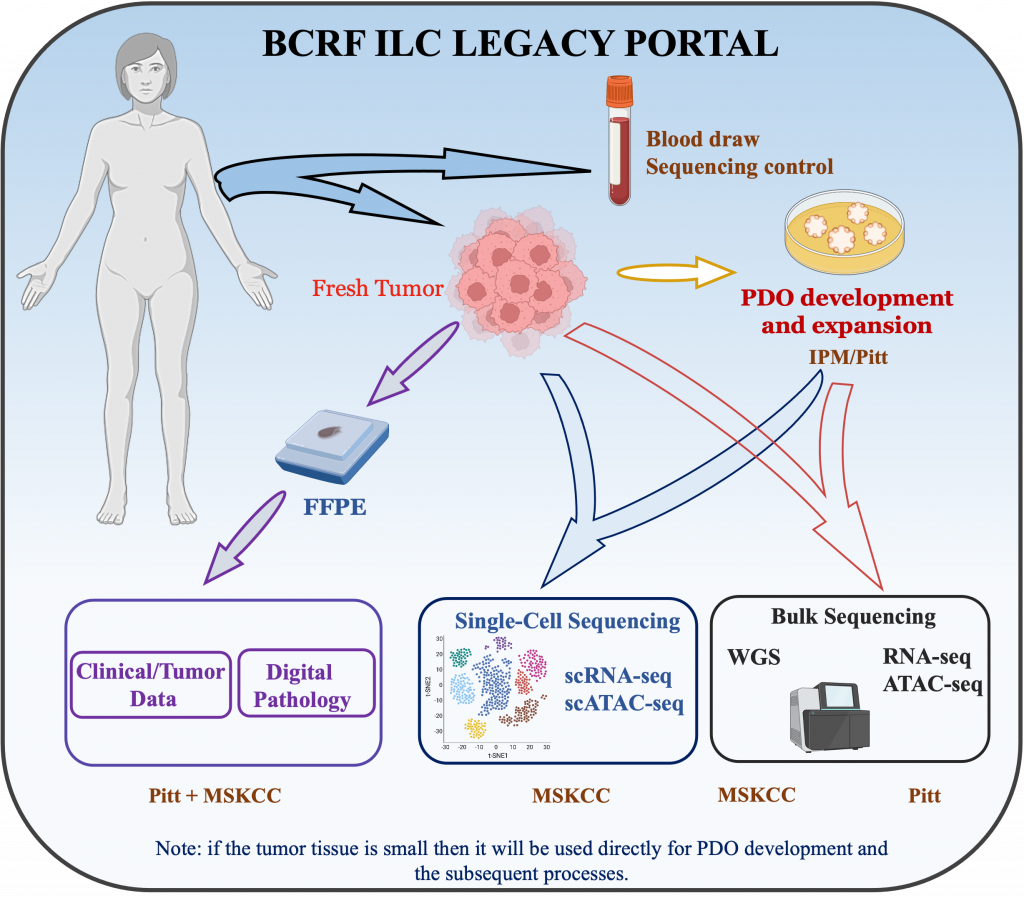
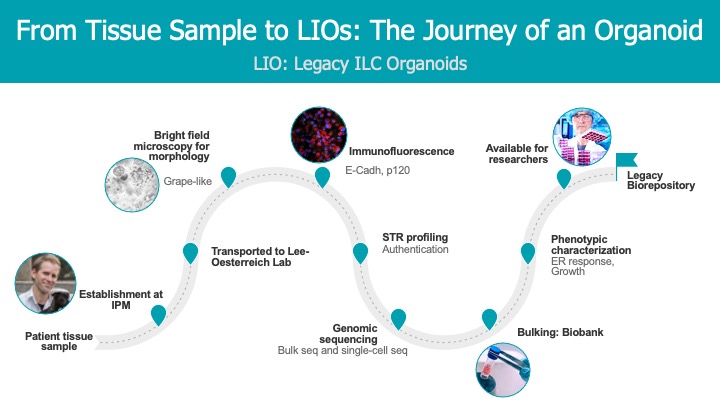
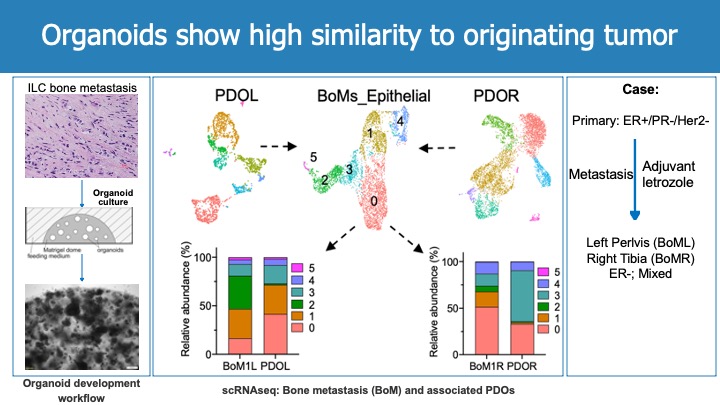
The first data of the project will be presented at the 2023 International Invasive Lobular Breast Cancer (ILC) Symposium (http://ilcsymposium.com/).
Presentations
BCRF ILC Legacy Team
The project is currently carried out by research groups at Pitt/UPMC and MSKCC. We do hope to expand it to 2-3 additional institutions over the coming year(s).



















